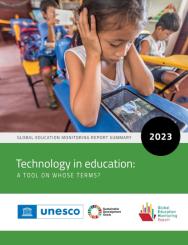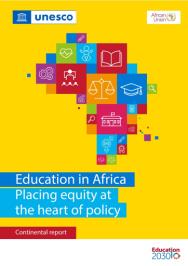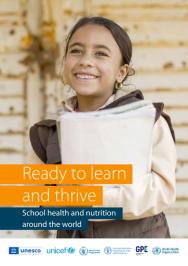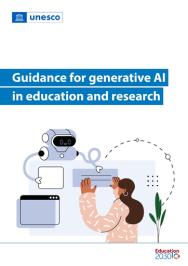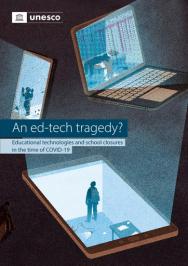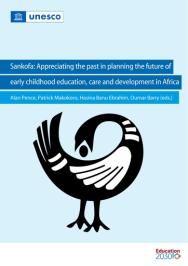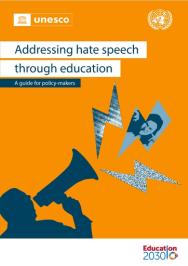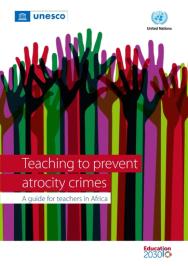News
2023 education highlights: Keeping up the momentum to transform learning
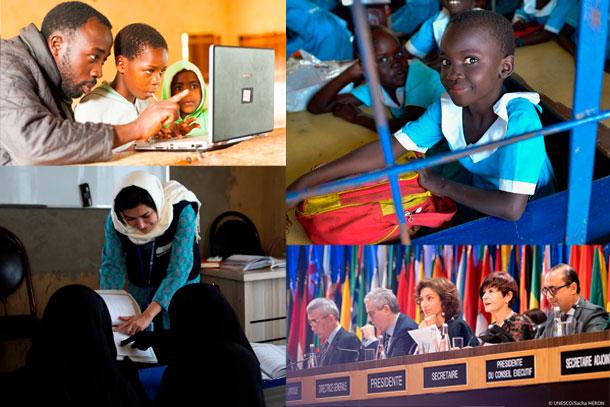
International Day of Education 2023 dedicated to Afghan girls and women
UNESCO dedicated this year's International Day of Education on 24 January to girls and women in Afghanistan who have been deprived of their right to pursue secondary and higher education. The Organization renewed its call to immediately restore their fundamental right to education. “No country in the world should bar women and girls from receiving an education,” said UNESCO Director-General Audrey Azoulay. “The international community has the responsibility to ensure that the rights of Afghan girls and women are restored without delay. The war against women must stop.”
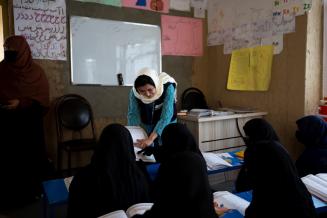
In Afghanistan’s Logar province, most girls and women are illiterate. Even before the decision of the de-facto authorities to suspend girls’ access to beyond primary education, most families did not let their girls go to school. Today, over 1,000 women and young girls aged 15 to 45 are learning how to read, write and calculate for the first time in their lives through UNESCO’s Community-based Basic General Literacy Classes. During UNESCO’s visit to two literacy classes, women and girls shared their motivations, challenges and inspirations for attending the classes. Nationwide, the Organization is currently reaching over 40,000 illiterate and semi-literate youth and adults – over 60% of whom are women – in 20 provinces.
Supporting learners and teachers in Ukraine
UNESCO and Ukraine’s Ministry of Education and Science launched an online training in digital pedagogy for 50,000 teachers, while the education of many Ukrainian students is still disrupted by the war. They are also training 15,000 school psychologists to withstand the impact of the war on the mental health of Ukrainian learners and teachers. “Since February 2022, UNESCO has continuously supported Ukrainian teachers to ensure that students continue learning in the midst of war,” said UNESCO Assistant Director-General for Education Stefania Giannini. “I pay tribute to their work, resilience and continued dedication. As the new academic year has just begun, UNESCO reaffirms its commitment to them. Because education is the cornerstone on which Ukraine's future is built.” Read more
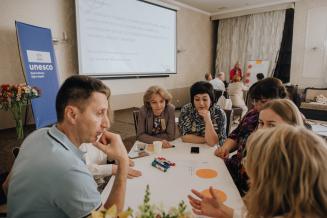
Monitoring country commitments made at the Transforming Education Summit
The latest UNESCO data shows that the global number of out-of-school children has risen by 6 million since 2021 and now totals 250 million. The figures, compiled by the Global Education Monitoring Report and the UNESCO Institute for Statistics, reveal that education progress continues to stagnate globally. The annual finance gap for helping low and lower-middle income countries achieve their national education targets is almost US $100 billion. UNESCO remains committed to supporting countries and partners to acquire the financing needed to meet their goals. The Organization is also monitoring country commitments made at the UN Transforming Education Summit in 2022 through its new dashboard. Read more
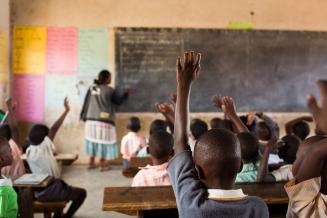
Urgent call for appropriate use of technology in learning and global guidance on generative AI in education
UNESCO’s 2023 Global Education Monitoring Report on technology in education highlights the lack of appropriate governance and regulation. It urges countries to set their own terms for the way technology is designed and used in education so that it never replaces in-person, teacher-led instruction, and supports the shared objective of quality education for all. The report proposes four questions that policy-makers and educational stakeholders should reflect upon as technology is being deployed in education. Read more
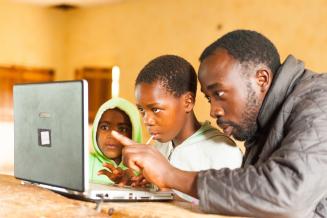
Generative artificial intelligence (GenAI) tools have far-reaching implications for education and research. Yet the education sector today is largely unprepared for the ethical and pedagogical integration of these powerful and rapidly evolving technologies, as UNESCO Assistant Director-General Stefania Giannini reiterated in her think piece. UNESCO developed the first-ever global guidance on GenAI in education. Launched during UNESCO’s flagship Digital Learning Week, it calls on countries to quickly implement appropriate regulations, policies, and human capacity development, for ensuring a human-centred vision of GenAI for education and research. Read more
UNESCO calls for an upgrade of teachers’ status to reduce the global shortage
“We must better value, better train and better support,” said UNESCO Director-General Audrey Azoulay on World Teachers’ Day (5 October). UNESCO and the Teacher Task Force’s first global report shows that globally, 44 million teachers are still needed to achieve the goal of providing primary and secondary education for all by 2030. This includes a demand for seven out of ten teachers at the secondary level and a need to replace over half of the existing teachers leaving the profession. The problem is not only one of funding, but also the unattractiveness of the profession. Read more
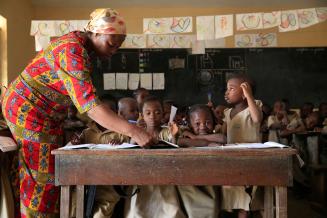
UNESCO adopts landmark guidance on education’s cross-cutting role in promoting peace
On 20 November 2023, the 194 UNESCO Member States adopted the Recommendation on Education for Peace, Human Rights and Sustainable Development at UNESCO’s General Conference. This is the only global standard-setting instrument that lays out how education should be used to bring about lasting peace and foster human development through 14 guiding principles. For the past two years, UNESCO has been revising this visionary tool to ensure it responds to today's greatest challenges and future shocks. Read more
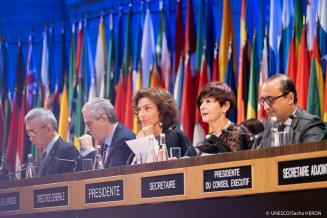
UNESCO at COP28: Making education the long-term solution to the climate crisis
UNESCO is accelerating climate change education and greening initiatives through its coordinating role of the Greening Education Partnership and extensive work on education for sustainable development. At COP28, UNESCO played a key role in the various dialogues on accelerating climate change education and emphasized the significance of sustainable learning in fostering long-term solutions for the climate crisis. The Organization presented at the COP the drafts of two new normative and groundbreaking resources: A global curriculum guidance for climate change education; and a green schools quality standards, which will be finalized and rolled-out next year. A major highlight of the gathering was launch of the Declaration for Climate Change and Education, focused on adaptation, mitigation and investment – which was signed and endorsed by 41 countries. Read more
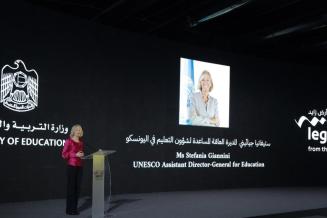
Exploring how rights should adapt as education evolves
The world has considerably changed since the key treaties on the right to education were conceived and adopted over half a century ago. Education can no longer be only confined to traditional classrooms and textbooks but has expanded to encompass lifelong and life-wide learning. UNESCO's Initiative on the evolving right to education launched its formal dialogue in December to explore how international human rights instruments can be reinforced and further developed to address today's needs and challenges. Read more
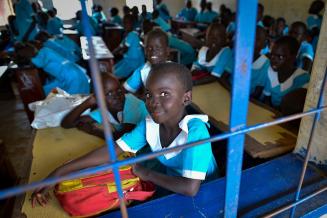
Looking into 2024, the International Day of Education will be celebrated on 24 January under the theme “learning for lasting peace”. The world is seeing a surge of violent conflicts paralleled by an alarming rise of discrimination, racism, xenophobia, and hate speech. An active commitment to peace is more urgent today than ever: Education is central to this endeavor, as underlined by the UNESCO Recommendation on Education for Peace, Human Rights and Sustainable Development.
Key UNESCO publications on education in 2023
